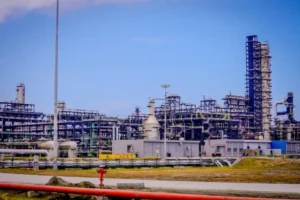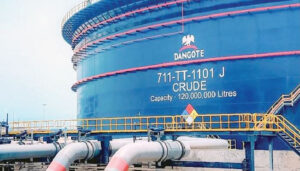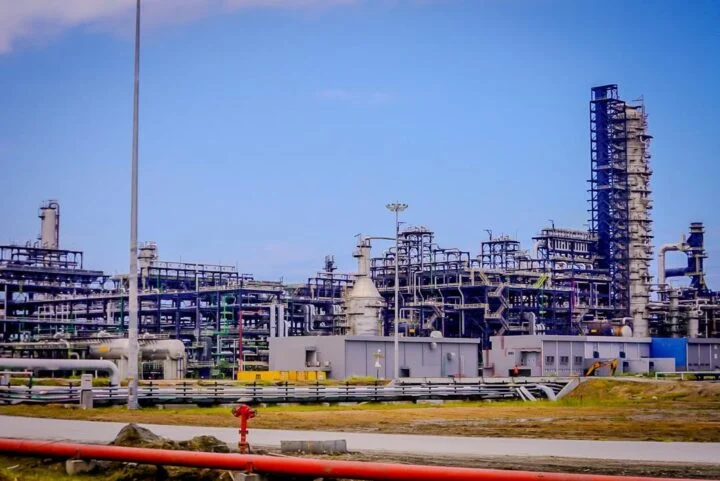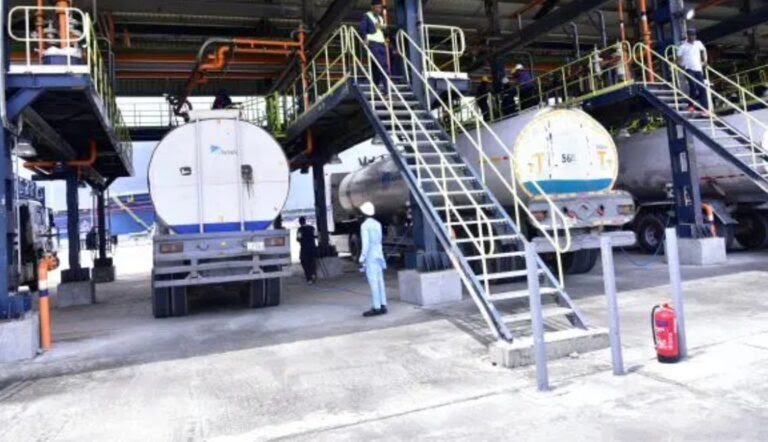
Over 3,000 Workers Still Employed at Dangote Refinery Amid Layoff Reports – Management Clarifies
- Business
- 26.09.2025
- No Comment
- 7
Over 3,000 Workers Still Employed at Dangote Refinery Amid Layoff Reports – Management Clarifies
The management of Dangote Petroleum Refinery has issued a clarification on Friday, addressing reports that the refinery had terminated the employment of a large number of Nigerian workers.
According to the refinery, over 3,000 Nigerians are still actively working at the facility despite a recent “total re-organisation” and allegations of anti-labour practices.
Earlier in the week, a leaked memo suggested that Dangote Refinery had terminated the employment of many of its Nigerian workers, allegedly because they joined workers’ unions such as the National Union of Petroleum and Natural Gas Workers (NUPENG) and the Petroleum and Natural Gas Senior Staff Association of Nigeria (PENGASSAN).

The memo, which quickly went viral, raised alarm among labour unions and the general public. NUPENG and PENGASSAN even threatened to shut down operations at the refinery, accusing management of pursuing anti-labour policies.
The labour dispute escalated when both NUPENG and PENGASSAN issued strong statements condemning what they termed as unfair treatment of workers and union members.
The unions, which represent thousands of oil and gas workers across Nigeria, warned that they could mobilise nationwide protests or industrial action if the situation was not addressed.
They accused Dangote Refinery of attempting to intimidate workers out of joining unions, which they say is a direct violation of workers’ constitutional rights and internationally recognised labour laws.
The controversial memo, dated September 25, 2025, and signed by the Chief General Manager of Human Asset Management, Femi Adekunle, announced a “total re-organisation” of the plant.
It cited repeated cases of sabotage in different units of the refinery as the reason for the drastic measures.
According to the memo: “As a consequence of this development, we wish to inform you that your services are no longer required, with effect from the eve of Thursday, the 25th September, 2025.”
The notice also instructed affected staff to surrender all company property to their line managers and obtain an exit clearance certificate, while the finance department was directed to compute their benefits and entitlements in line with the conditions of service.
Management’s Clarification on Friday
In a statement released on Friday, Dangote Refinery clarified that the exercise was not arbitrary or targeted at unionised workers.
Instead, the company explained that the move was a necessary step to protect the refinery from repeated acts of sabotage that have raised safety concerns and disrupted operational efficiency.

The statement emphasised that over 3,000 Nigerian workers remain employed at the refinery and that only a very small number of staff were affected by the reorganisation.
The statement read: “This exercise is not arbitrary. It has become necessary to safeguard the refinery from repeated acts of sabotage that have raised safety concerns and affected operational efficiency.
The foregoing decision was taken in the best interest of the refinery as a result of intermittent cases of sabotage in the various units with dire consequences on human life and related safety concerns.”
It continued: “We remain vigilant to our internal systems and vulnerabilities to ensure the long-term stability of this strategic national asset.
It is imperative to protect the refinery for the benefit of Nigerians, our partners across Africa, and the thousands of people whose livelihoods depend on it.”
“Over 3,000 Nigerians continue to work actively in our Petroleum Refinery at present. Only a very small number of staff were affected, as we continue to recruit Nigerian talent through our various graduate trainee programmes and experienced hire recruitment process.”

“We recognise and uphold internationally accepted labour principles, including the right of every worker to freely decide whether or not to join a union. Our commitment to workers’ rights is unwavering.”
“The Dangote Petroleum Refinery exists to serve Nigerians, to strengthen Africa’s energy independence, and to create decent, sustainable jobs.
We will continue to work in partnership with our employees, regulators, and stakeholders to uphold the highest standards of safety, transparency, and accountability.”
The management also highlighted its ongoing efforts to recruit more Nigerian talent, citing its graduate trainee programmes and experienced hire processes as part of its long-term human capital strategy.
It stressed that it recognises the rights of workers to freely associate or join unions without fear of reprisal.
By reiterating its commitment to labour principles, Dangote Refinery sought to counter the narrative that the reorganisation was an anti-union move.
As one of the largest industrial projects in Africa, the Dangote Petroleum Refinery is considered a strategic national asset for Nigeria and the continent.
Designed to process 650,000 barrels of crude oil per day, the refinery is expected to reduce Nigeria’s reliance on imported petroleum products and create thousands of jobs.
The management argued that safeguarding the refinery from sabotage and ensuring its operational stability is essential for the success of the project and the economic benefits it promises to deliver.
Despite the management’s clarification, NUPENG and PENGASSAN have not ruled out industrial action.
Union leaders have stated that they are closely monitoring the situation and may take further steps if they believe workers’ rights are being violated.
Analysts warn that if the dispute is not resolved amicably, it could escalate into a major confrontation that might disrupt operations at the refinery and affect Nigeria’s broader oil and gas sector.
The Dangote Petroleum Refinery’s clarification that over 3,000 Nigerian workers are still employed despite recent layoffs underscores the complexity of the ongoing dispute with oil workers’ unions.
While the company insists the reorganisation was necessary for safety and operational reasons, labour unions continue to view the development with suspicion.
As the situation unfolds, stakeholders—including the federal government, regulators, and labour unions—will need to engage in dialogue to protect both the refinery’s operations and workers’ rights.
The outcome of this dispute could set an important precedent for industrial relations in Nigeria’s oil and gas sector.







